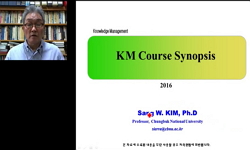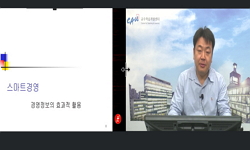최근 급변하는 경영환경 하에서 생존과 새로운 도전을 위하여 많은 기업들이 ERP 시스템을 도입하였다. 그러나 ERP 시스템의 도입은 자금, 시간, 노력 등 많은 자원을 요구한다. 그럼에도 불구...
http://chineseinput.net/에서 pinyin(병음)방식으로 중국어를 변환할 수 있습니다.
변환된 중국어를 복사하여 사용하시면 됩니다.
- 中文 을 입력하시려면 zhongwen을 입력하시고 space를누르시면됩니다.
- 北京 을 입력하시려면 beijing을 입력하시고 space를 누르시면 됩니다.

Examining the Impact of Enterprise Resource Planning system Implementation on Firm Performance
한글로보기https://www.riss.kr/link?id=A103962194
- 저자
- 발행기관
- 학술지명
- 권호사항
-
발행연도
2015
-
작성언어
English
- 주제어
-
등재정보
KCI등재
-
자료형태
학술저널
-
수록면
165-200(36쪽)
-
KCI 피인용횟수
1
- DOI식별코드
- 제공처
-
0
상세조회 -
0
다운로드
부가정보
국문 초록 (Abstract)
최근 급변하는 경영환경 하에서 생존과 새로운 도전을 위하여 많은 기업들이 ERP 시스템을 도입하였다. 그러나 ERP 시스템의 도입은 자금, 시간, 노력 등 많은 자원을 요구한다. 그럼에도 불구하고, 여전히 ERP 도입 효과에 대한 의문은 남아 있다. 본 연구에서는 ERP 도입 기업의 광범위한 성과지표 뿐만 아니라 여러 해 동안의 재무자료를 분석하여 기업들이 ERP 시스템의 도입을 통해 성과의 개선을 가져왔는지를 평가할 것이다. 우리는 기업 간 비교와 과거 7년 이상의 기간을 통한 기업의 ERP 도입 전후 성과를 쌍대비교한다. 전반적으로 ERP 시스템의 도입은 기업의 전반적인 성과 개선에 긍정적 관계가 있는 것으로 나타났다. 또한, ERP 도입 기업의 평균 성과가 ERP 비도입 기업의 평균 성과보다 큰 것으로 나타났다. 이는 ERP 시스템 도입이 ERP 시스템을 통한 미래 효익 창출을 통해 기업 성과를 개선시킨다는 중요한 시사점이 된다.
다국어 초록 (Multilingual Abstract)
In recent years, many companies have been implementing ERP systems to overcome new challenges and survive severe business environments which are changing dramatically. However, implementation of the ERP system requires a great deal of resources includ...
In recent years, many companies have been implementing ERP systems to overcome new challenges and survive severe business environments which are changing dramatically. However, implementation of the ERP system requires a great deal of resources including money, time, effort, etc. Despite the tremendous amount of costs and effort, there are still doubts about the effects of ERP implementation. In this paper, by analyzing the multi-year financial data of ERP adopting firms as well as a wide variety of performance measures, we examined whether or not firms have shown performance improvements through the implementation of ERP systems. We employed the intra-firm comparison and matched pair comparison methods to compare performance measures before and after ERP implementation within a firm over a period of 7 years. Overall, the results revealed that ERP system implementation was positively associated with the overall improvement of firm performance. We also found that the average performance of ERP adopting firms was greater than that of non-ERP adopting firms. These significant findings suggest that adopting ERP systems allows for better firm performance because more future benefits are gained from ERP systems.
참고문헌 (Reference)
1 Brakely, H. H., "What Makes ERP Effective?" 17 (17): 120-132, 1999
2 Bailey, J., "Trash Haulers are Taking Fancy Software to the Dump" 9 : B4-, 1999
3 White, J., "This German Software is Complex, Expensive and Wildly Popular" 3 : 14-97, 1997
4 Gurbaxani, V., "The impact of information systems on organizations and markets" 34 (34): 59-73, 1991
5 Lucas, H., "The Role of Information Technology in Organization Design" 10 (10): 9-23, 1994
6 Davenport, T., "The Return of Enterprise Solutions" Accenture 2002
7 Weill, P., "The Relationship between Investment in Information Technology and Firm Performance : A Study of the Valve Manufacturing Sector" 3 (3): 307-333, 1992
8 Hunton, J. E., "The Reaction of Financial Analysts to ERP Implementation Plans" 16 (16): 31-40, 2002
9 Brynjolfsson, E., "The Productivity Paradox of Information Technology : Review and Assessment" 36 (36): 67-77, 1993
10 Hawking, P., "The Next Hurdle for ERP Implementations" 235c-, 2003
1 Brakely, H. H., "What Makes ERP Effective?" 17 (17): 120-132, 1999
2 Bailey, J., "Trash Haulers are Taking Fancy Software to the Dump" 9 : B4-, 1999
3 White, J., "This German Software is Complex, Expensive and Wildly Popular" 3 : 14-97, 1997
4 Gurbaxani, V., "The impact of information systems on organizations and markets" 34 (34): 59-73, 1991
5 Lucas, H., "The Role of Information Technology in Organization Design" 10 (10): 9-23, 1994
6 Davenport, T., "The Return of Enterprise Solutions" Accenture 2002
7 Weill, P., "The Relationship between Investment in Information Technology and Firm Performance : A Study of the Valve Manufacturing Sector" 3 (3): 307-333, 1992
8 Hunton, J. E., "The Reaction of Financial Analysts to ERP Implementation Plans" 16 (16): 31-40, 2002
9 Brynjolfsson, E., "The Productivity Paradox of Information Technology : Review and Assessment" 36 (36): 67-77, 1993
10 Hawking, P., "The Next Hurdle for ERP Implementations" 235c-, 2003
11 Koch, C., "The Integration Nightmare : Sounding the Alarm" 15 : 6-10, 1996
12 Grover, V., "The Influence of Information Technology Diffusion and Business Process Change on Perceived Productivity : the IS Executive’s Perspective" 34 (34): 141-159, 1998
13 Krumbholz, M., "The Implementation of ERP Packages in Different Organisational and National Cultures" 26 (26): 185-204, 2001
14 Jung, K. S., "The Impact of Organizational Context on the Performance of ERP Systems" 12 (12): 19-45, 2003
15 Mabert, V. A., "The Impact of Organization Size on ERP Implementations in the US Manufacturing Sector" 31 (31): 235-246, 2003
16 McAfee, A., "The Impact of Enterprise Resource Planning Systems on Company Performance" 1999
17 Shim, H. S., "The FI Module of the SAP R/3 System" 16 (16): 55-78, 2000
18 Markus, M. L., "The Enterprise Systems Experience - from Adoption to Success" 173 : 173-207, 2000
19 Jenson, R. L., "The Enterprise Resource Planning System as a Strategic Solution" 15 (15): 28-33, 1999
20 Sheu, C., "The Effect of National Differences on Multinational ERP Implementation : An Exploratory Study" 14 (14): 641-657, 2003
21 Song, J., "The Effect of Information Sharing on ERP Implementation : On the Basis of Automobile Firm Case" 26 (26): 147-173, 2010
22 Hong, K., "The Critical Success Factors for ERP Implementation : An Organizational Fit Perspective" 40 (40): 25-40, 2002
23 Wagle, D., "The Case for ERP Systems" The Mckinsey Quarterly
24 Rai, A., "Technology Investment and Business Performance" 40 (40): 89-97, 1997
25 Bresnahan, T., "Technical Progress and Co-Invention in Computing and in the Uses of Computers" 1996 : 1-83, 1996
26 Stedman, C., "Survey : ERP Costs more than Measurable ROI" 33 (33): 6-, 1999
27 Ross, W., "Surprising Facts about Implementing ERP" 1 (1): 65-68, 1999
28 Brown, R. M., "Strategic Information Systems and Financial Performance" 11 (11): 215-248, 1995
29 Davenport, T., "Serving Up ERP Value" 1 (1): 26-29, 1998
30 Cooke, D. P., "SAP Implementation: Strategies and Results" The Conference Board 1998
31 Davenport, T., "Putting the Enterprise into the Enterprise System" 76 (76): 121-131, 2000
32 Hitt, L., "Productivity, Profit and Consumer Welfare : Three Different Measures of Information Technology" 20 (20): 121-142, 1996
33 Ives, B., "Organizing for Global Competition : The Fit of Information Technology" 24 (24): 547-580, 1993
34 Granlund, M., "Moderate Impact of ERPS on Management Accounting : A Lag or Permanent Outcome?" 13 (13): 299-321, 2002
35 Hayes, D. C., "Market Reaction to ERP Implementation Announcements" 15 (15): 3-18, 2001
36 Howell, R., "Management Accounting(and other)Lessons from the Japanese" 74 (74): 28-33, 1992
37 Stein, T., "Making ERP Add up: Companies that Implemented Enterprise Resource Planning Systems with Little Regard to the Return on Investment are Starting to Look for Quantifiable Results" 24 : 59-, 1999
38 Hitt, L., "Investment in ERP : Business Impact and Productivity Measures" 19 (19): 71-98, 2002
39 Kallunki, J. -P., "Impact of Enterprise Resource Planning Systems on Management Control Systems and Firm Performance" 12 (12): 20-39, 2011
40 Wah, L., "Give ERP a Chance" 89 (89): 20-24, 2000
41 Brealey, A., "Fundamentals of Corporate Finance" McGraw-Hill 2001
42 Poston, R., "Financial Impacts of Enterprise Resource Planning Implementation" 2 (2): 271-294, 2001
43 Balakrishnan, R., "Financial Benefits from JIT Adoption : Effects of Customer Concentration and Cost Structure" 71 (71): 183-205, 1996
44 Libby, R., "Financial Accounting" McGraw-Hill 2001
45 Stein, T., "Extending ERP" 686 : 75-82, 1998
46 Gartner Group, "Extended Enterprise Applications"
47 Buchanan, G., "Enterprise Resource Planning: A Closer Look" 2000 : 14-15, 2000
48 O’Leary, D., "Enterprise Resource Planning Systems: Systems, Life Cycle, Electronic Commerce, and Risk" Cambridge Univ. Press 2000
49 Hunton, J. E., "Enterprise Resource Planning System : Comparing Firm Performance of Adopters and Nonadopters" 4 (4): 165-184, 2003
50 Al-Mashari, M., "Enterprise Resource Planning : A Taxonomy of Critical Factors" 146 (146): 352-364, 2003
51 Martin, M., "Enterprise Resource Planning" 137 (137): 149-151, 1998
52 Lee, J., "Empirical Approach to the Sequential Relationships between Firm Strategy, Export Activity, and Performance in U. S. Manufacturing Firms" 13 (13): 101-129, 2004
53 Deloitte, "ERP’s Second Wave" Deloitte Consulting 1999
54 Gilbert, A., "ERP Vendors Look for Rebound after Slowdown" 773 : 98-99, 2000
55 McKeen, J., "ERP Systems : What a Manager Needs to Know?" Queen’s Univ. Research Program 2002
56 Lee, D. G., "ERP Strategies and Practices" Daechung Press 1999
57 Li, C., "ERP Packages : What’s Next?" 16 (16): 31-35, 1999
58 Loizos, C., "ERP : Is It the Ultimate Software Solution" 7 : 33-, 1998
59 Soh, C., "Cultural Fits and Misfits : Is ERP a Universal Solution?" 43 (43): 47-51, 2000
60 Bingi, P., "Critical Issues Affecting an ERP Implementation" 16 (16): 7-14, 1999
61 Palepu, K. G., "Business Analysis & Valuation using Financial Statements" South-Western College Publishing 2000
62 Brynjolfsson, E., "Beyond the Productivity Paradox" 41 (41): 49-56, 1998
63 Jeon, S. H., "An Empirical Study on the Relationship between the Characteristics of Organizational Structure and ERP Performance" 16 (16): 1-18, 2000
64 Somers, T. M., "A Taxonomy of Players and Activities across the ERP Project Life Cycle" 41 (41): 257-278, 2004
65 Bharadwaj, A., "A Resource-Based Perspective on Information Technology Capability and Firm Performance : An Empirical Investigation" 24 (24): 169-196, 2000
66 Holland, C., "A Critical Success Factors Model for ERP Implementation" 16 (16): 30-35, 1999
동일학술지(권/호) 다른 논문
-
- 경성대학교 산업개발연구소
- 하태정
- 2015
- KCI등재
-
기업의 사회적 책임 활동에 영향을 미치는 요인이 브랜드 자산에 미치는 영향
- 경성대학교 산업개발연구소
- 현주엽
- 2015
- KCI등재
-
- 경성대학교 산업개발연구소
- 김종호
- 2015
- KCI등재
-
전자부품 중소기업의 상대적 탐험지향성이 경영성과에 미치는 영향
- 경성대학교 산업개발연구소
- 하성욱
- 2015
- KCI등재
분석정보
인용정보 인용지수 설명보기
학술지 이력
| 연월일 | 이력구분 | 이력상세 | 등재구분 |
|---|---|---|---|
| 2026 | 평가예정 | 재인증평가 신청대상 (재인증) | |
| 2022-07-21 | 학술지명변경 | 외국어명 : 미등록 -> Journal of Industrial Innovation |  |
| 2020-01-01 | 평가 | 등재학술지 유지 (재인증) |  |
| 2017-01-01 | 평가 | 등재학술지 유지 (계속평가) |  |
| 2013-01-01 | 평가 | 등재학술지 유지 (등재유지) |  |
| 2010-01-01 | 평가 | 등재학술지 선정 (등재후보2차) |  |
| 2009-01-01 | 평가 | 등재후보 1차 PASS (등재후보1차) |  |
| 2008-07-02 | 학술지명변경 | 한글명 : 상경연구 -> 산업혁신연구 |  |
| 2007-01-01 | 평가 | 등재후보학술지 선정 (신규평가) |  |
학술지 인용정보
| 기준연도 | WOS-KCI 통합IF(2년) | KCIF(2년) | KCIF(3년) |
|---|---|---|---|
| 2016 | 0.62 | 0.62 | 0.75 |
| KCIF(4년) | KCIF(5년) | 중심성지수(3년) | 즉시성지수 |
| 1.05 | 1.12 | 0.89 | 0.21 |




 KCI
KCI






